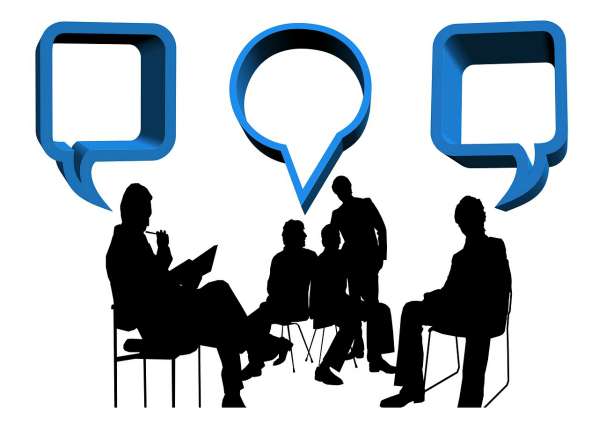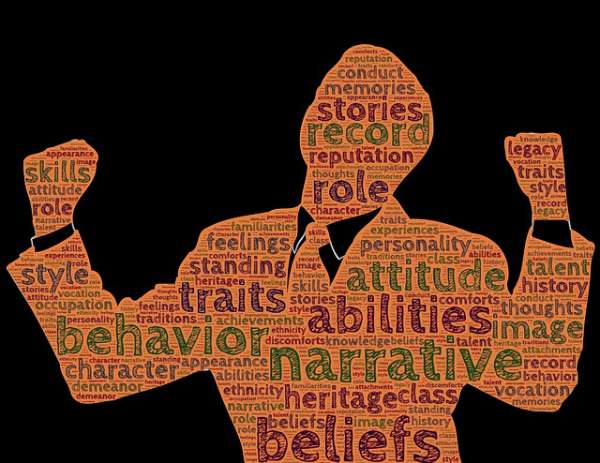In the first segment titled Six Interview Tips for Freshers : How to Crack Your Maiden Interview, we covered six preliminary interview tips to get you going on your first interview up to the point where you are facing your interviewer. In this section, we take it a step further by sharing views on body language, speech and subtle cues to enhance your chances of being short listed.
Image Source: geralt via Pixabay
But before we move in that direction, let us focus on a very important virtue (yes, virtue) – Integrity, something that seems to be lacking today. Be true to yourself. Have a moral compass (without being self-righteous). Pretending to be someone you are not will hamper your progress in the long run for if you are dishonest or a cheat, it is bound to reflect through your actions.
Never ever fake your credentials or documents. Background checks are very thorough these days. If you are caught, be prepared to be sacked.
Now let us move on to the ‘Attitude’.
Fine Tune Your Attitude
The aura you project while walking into a room will either help you earn brownie points or lose some. Let’s say we have two applicants, one a nervous individual with a pessimistic attitude and the other a self-assured individual with an optimistic mind set. Who do you think would stand a better chance? The answer is pretty obvious.
Sometimes, even if you do not have all the answers to the questions asked, you just might be selected because you have the right attitude. Stay positive. A person with the right attitude will be able to blend into the corporate culture easily.
Image Source: johnhain via Pixabay
So remember, an inner projection of your thoughts will reflect in your attitude, mannerisms and speech even without you realizing it.Word of advice though, always go prepared, exude confidence but do not be over confident (especially if you have not bothered to prepare) at the risk of appearing arrogant or cocky. No matter how good you are, over confidence will be your undoing.
Good Body Language
The right attitude coupled with good body language matters – A LOT! Who would you lean in favour of? A fidgety shifty eyed person? Or a confident individual who holds a steady gaze? You would prefer the latter over the former individual wouldn’t you? The same holds good in an interview. You need to make a lasting impression in a short duration.
Image Source: via Flickr
So how do you go about with it?
Firm Handshake – A firm handshake (if there is a need for it) is preferred to a limp handshake. Do not make the mistake of crushing an offered palm either. Oh! And wipe your palms if they are sweaty before you shake a person’s hand. You do not want the person to mentally cringe in disgust.
Facial Expression - Avoid ‘shifty eyes’ please! People who are nervous, uncomfortable or have something to hide usually look everywhere else but at the person they are talking to.
You have not come all the way for an interview to address the wall.
Instead, maintain steady eye contact; break away from time to time. Do not stare. You are not there to drill holes into someone’s skull. It is important to know the difference. Do not go for the ‘dead pan’ expression either. Appear lively without being overly excited.
Good Posture– Sit straight, relax your shoulders and be at ease. Refrain from slouching like the Hunchback of Notre-Dame. Where your arms are concerned, do not cross them. Most people perceive this pose as a sign of resistance or defensiveness. While this is a myth, unfortunately not many are aware of this. So beware.
Do not shake your legs or tap your feet continuously. No fidgeting, wild gestures (hands flying all over the place), touching your hair, nose, neck unnecessarily. And for goodness sake! Keep your legs together and not wide apart! (It is so inappropriate)Remember. You are being observed.
Voice Modulation – Tone of voice is important. Do not whisper or speak softly so that you are asked to repeat yourself. Do not rush through your sentences like you are in a hurry to catch the Shatabdi Express either. You need to be audible, articulate and logical. And most of all, do not speak in mono tones! Sound passionate without being melodramatic.
You might also want to do away with the fake accents please, especially if it inconsistent. It is a put off (Unless you are applying for the job of an accent trainer of course!).
Words are worth their weight in Gold.
Pronunciation and Grammar – Focus on building your vocabulary and pronounce your words correctly. This is a key competency that interviewers look for in a candidate.
Some of the ways in which you can improve this skill is by reading the right books, listening to audio series, watching the right movies, documentaries etc. With persistence, hard work and practice any skill can be honed with time.
Weigh your Words – Basis your responses, an interviewer will gauge if you could become a potential fit for a given role. So make sure every word adds value.
buy nolvadex online https://cpff.ca/wp-content/languages/new/canadaa/nolvadex.html no prescription
Avoid fillers as much as possible such as “Actually”, “Basically”, “I mean” in every other sentence when you are at a loss for words.
Keep it Crisp – Answer to the point without sharing irrelevant information as this may lead to unnecessary questions. So do not blabber.At the time of introduction give just about the right amount of information without narrating your autobiography. Make sure you remember your scores, year of passing etc. as given in your resume. Do not blank out at this stage and give out the wrong dates instead. Stay focused.
Concepts– Your fundamentals in the field you have majored in should be rock solid. If you are applying for a job in the finance or IT sector make sure you understand the concepts, technical jargon reasonably well. This will make you stand out from the rest of your competition.
Know the company – More often than not, newbies do not spend time reading about the company that they have applied for. It gives the impression that they have come unprepared, thus lowering their chances.
It is not enough if you know where the Headquarters’ of the company is situated and the year it was established. Read a lot more than that. Like how the company is faring in the industry, the working culture and products offered, who the CEO’s are, what are the company’s key strengths, have there been any major mergers or acquisitions, any awards received, have they made headlines in the news lately etc. etc.
And with the knowledge that you have gathered, use only the information that is needed in the context of your interview without sounding like a textbook. Understand what you have read instead of just mugging it up.
Hobbies– Should the subject on hobbies arise, during the course of your discussion remember to talk about something that you are genuinely passionate about. This ways you will be able to talk about it in depth. Liking an activity does not necessary make it one’s hobby.
Let’s say you like swimming but have never really swum except once in a while, that is not your hobby. So if an interviewer were to ask you to talk about your ‘so called’ hobby – swimming and you do not even know what a dead man’s float or a butterfly stroke is how then can it be something that you are passionate about? It doesn’t matter if the interviewer is not well versed in the subject of swimming, but the way in which you talk about it will actually show how well you know the sport.
If you are unsure of what your hobby is, stick to a safe bet like reading. In that case, make sure you know about books reasonably well (authors, genres, your views around your favorite book).
Contradictions– A common mistake that one commits from time to time is contradicting one’s own statement.For example, you say that you like interacting with people and minutes into the conversation you give the impression that you hate to mingle. Well that is a total contradiction.
Here’s another mistake that a candidate makes. You start off by talking about something you believe in, but if the interviewer poses a counter question, you change your opinion to agree with the interviewer. Unless your logic tells you otherwise, do not change your stance without any thought behind it.
It gives the impression that you are easily swayed at the hint of pressure or that you are unclear of your own beliefs. Even if you feel intimidated by your interviewer and think that you need to give a response basis what you ‘think’ they want to hear, don’t. Stick to your answer.
At the same time, if you have made a mistake, do not fret.In instances where you need to correct your answers, please feel free to do so.
Compensation – And finally! A subject that everyone holds close to their heart: Money.
Unless you have passed out from a premier institute or have bagged a niche role in a high paying company, do not expect to be paid a fat salary. Freshers are usually pegged at a specific slab. So be realistic while expressing your salary expectations without just shooting a random unrealistic figure.
buy synthroid online https://cpff.ca/wp-content/languages/new/canadaa/synthroid.html no prescription
You just might diminish your chances of getting the job. So do not haggle, especially when it is your first job.
If possible, understand the industry standards of a given sector by doing a little research just to give you a sense of what to expect. Make a practical decision thereafter.
So if you keep these points in mind and inculcate whatever is applicable, you are sure to make some headway. And even if you do not clear your first interview, it is not the end of the world. Learn from your experience and move on to the next. Life is filled with opportunities. If you keep at it, you are sure to succeed. Good Luck!
Do Not Miss Reading:
Six Interview Tips for Freshers : How to Crack Your Maiden Interview




